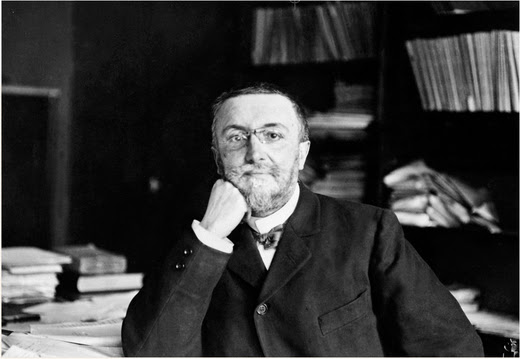Alfred Binet was a French psychologist who invented the first intelligence test, better known today as the IQ test.
Early life
Alfred Binet was born on July 11, 1857 as Alfredo Binetti in Nice, which was then part of the Kingdom of Sardinia. He father was a physician, and his mother was an artist. When Binet was young his parents divorced, and he moved to Paris with his mother when he was fifteen.
Education
Binet attended a famous law school in Paris. After receiving his license to practice law in 1878, he followed the footsteps of his father and decided to study medicine. Binet began his studies at Sorbonne, but soon began self-educating himself in psychology by reading books by Charles Darwin, John Stuart Mill, Alexander Bain and others.
Achievements
Alfred Binet began working at the Salpêtrière Hospital in Paris under the guidance of John-Martin Charcot. Afrer that he moved to a position at the Laboratory of Experimental Psychology at the Sorbonne where he was the associate director and researcher. In 1894, Binet was appointed the director of the lab, a position in which he remained until his death in 1911. This position enabled him to pursue his studies on mental processes.
Most of his studies evolved around children’s intelligence. Binet compared the development of gifted children and children of lesser intellectual capacity. He tried to find different ways to predict intelligence, examining different parameters like body measurements and handwriting.
In 1904 French government approached and asked him to make recommendations for the education of children of lesser intellectual capacity. He created a diagnostic tool which could quantify intellectual ability of every child, so that they can be placed in classes appropriate to their cognitive abilities. Binet worked on diagnostic this tool with Theodore Simon. They released the first version in 1905. Binet-Simon scale was intended to test a child’s cognitive capacity, not their learned knowledge. Children had to perform a variety of tasks, especially abstract problem solving. Binet and Simon tested a lot of children to determine what problem solving tasks could be expected to be mastered by a given age. Test scores were then reported as a mental age, ranging from 3-13 years. A child’s mental age could match their chronological, or it could be different in either direction from their chronological age. A mental age lower than chronological age night indicate mental retardation; a mental age greater than chronological age might indicate above average intelligence.
Binet’s intelligence scale serves as the basis for modern intelligence tests, however Binet himself didn’t believe that his test was measuring a permanent or inborn degree of intelligence. He believed that that one’s score can vary depending on few different factors such as motivation or similar.
Later life
In 1911 Binet and Simon published their last revision of the tests. At the time of his death Alfred Binet was working on another revision of his scales. He died on October 18, 1911.
Alfred Binet quotes
“It seems to us that in intelligence there is a fundamental faculty, the alteration or the lack of which, is of the utmost importance for practical life. This faculty is judgment, otherwise called good sense, practical sense, initiative, the faculty of adapting one’s self to circumstances. A person may be a moron or an imbecile if he is lacking in judgment; but with good judgment he can never be either. Indeed the rest of the intellectual faculties seem of little importance in comparison with judgment”
“The scale, properly speaking, does not permit the measure of the intelligence, because intellectual qualities are not superposable, and therefore cannot be measured as linear surfaces are measured.”
“Comprehension, inventiveness, direction, and criticism: intelligence is contained in these four words.”
“Our purpose is to be able to measure the intellectual capacity of a child who is brought to us in order to know whether he is normal or retarded. … We do not attempt to establish or prepare a prognosis and we leave unanswered the question of whether this retardation is curable, or even improvable. We shall limit ourselves to ascertaining the truth in regard to his present mental state. ”

